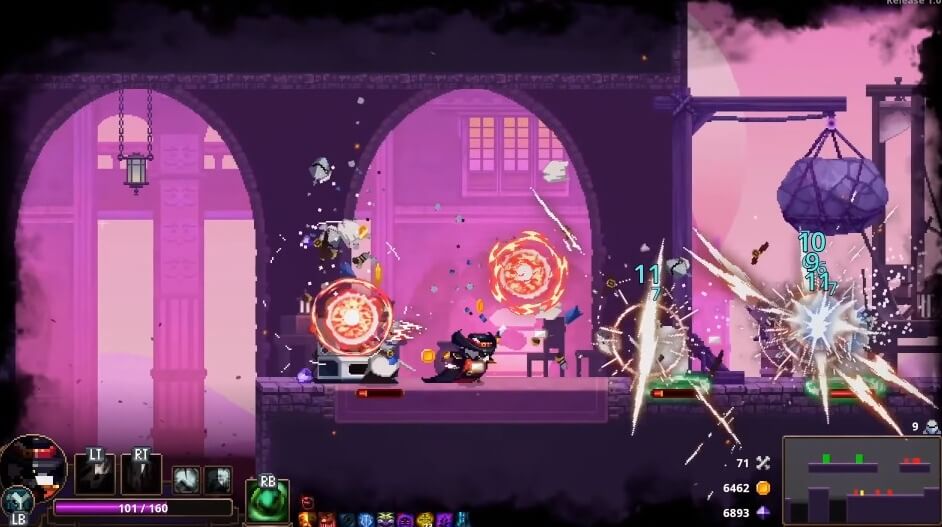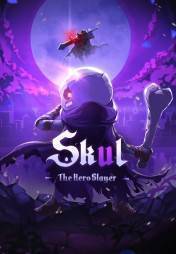

Since there are only a handful of enemies in each of the themed levels, difficulty infrequently means "new enemies" and is more often "more enemies", throwing masses of armor-clad goons at you room after room. The enemies in each level of the game don't differ, there are only a handful of stage layouts, and each boss you fight is invariably the same every instance you meet them, eventually becoming trivial - unless you've been stuck with a particularly bad skull. Most skulls consist of a single attack base melee attack that aside from speed and power is rather indistinguishable. The game does a poor job of explaining these concepts, but after a few hours, I had the hang of it enough to style each run to my liking.ĭespite the collection of resources and differences of skulls, each run ultimately feels very similar, which leads to quick fatigue as you play the game repeatedly. Sometimes, you'll even get to choose which type of reward you'll receive next based upon which door you enter at the end of a room.

There's a lot of different currencies abound as well, like bones for upgrading skulls, purple gems for granting small permanent upgrades back at your castle, gold for buying items in the infrequent shop, and occasionally your own life. Special abilities on cooldowns typically deal higher damage or allow you a momentary escape, but the incongruity of gameplay leaves something to be desired.Īt the end of each stage - or room, as it were - you will find a gift for yourself, be it money, a skull, some item granting permanent buffs, or a usable trinket, known as a Quintessence. However, getting stuck with certain skulls means you'll be decidedly weaker against large foes, or large groups of enemies, and passive playstyles slow down the gameplay significantly. Skulls are split into three categories - power, balance, and speed - and you can carry up to two at a time, occasionally switching between them to suit your needs. Unfortunately, not all skulls are created equal. This forces a variety of gameplay upon the player but actually serves as a small detriment to the game, forcing players to either play out a run in a style they don't like or endlessly restarting to get the skull they desire. Skulls are randomly generated and distributed as you play, which means you may have to wait several runs to see your favorite skull again. There's a handful of different playstyles at your disposal, but typically, you won't get to choose which. This isn't an issue, mind you: this game stands on its own without deep lore.Ĭhanging the style of each run you play will come in the form of donning the skulls of your allies before you - petty thief, werewolf, pikeman, alchemist. There is a story behind Skul: The Hero Slayer, but it is almost entirely irrelevant to your journey, is mostly nonsensical, and comes in such short bursts at such long intervals that I'm surprised they bothered at all. Your allies are the typical villains of spiders, ogres, and witches, attempting to assist you along each step of your path. In reality, you are the small minion mowed over countless times by the hero in other fantasy tales, and you've had enough. In Skul: The Hero Slayer, you play as the titular hero on his quest to rescue his king from an army of warriors, mages, trees, footmen, and soldiers. And while Skul gets some of this formula right, it perishes in a few key ways that will keep the title from being a classic. Will the game be filled with overwhelming powerups that drastically change the course of gameplay? Are the rooms randomized in order to make each run feel different from the previous? Will you interact with colorful characters, endearingly voice acted and emotionally attached to the protagonist? These are the questions upon my mind as I enter each rogue-like experience, like SouthPAW Games' new release Skul: The Hero Slayer. It's a simple formula, but the little things about each run are what make each title unique and special. Gamers like myself feed off of the satisfying gameplay loop of run, die, run again, and finding themselves improving all the while, inching ever closer to success. It's no surprise that a number of developers will make every attempt to cash in on the success of this gaming trend, and for good reason. Recent years of indie gaming have been dominated by roguelikes and roguelites, with last year's successes of titles like Hades and Neon Abyss leading the way.


 0 kommentar(er)
0 kommentar(er)
